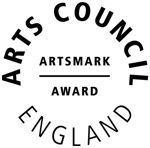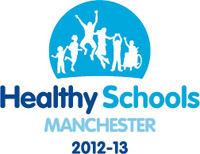Early Reading

How we Teach Early Reading
At Crosslee Community Primary School, our fundamental aim is to ensure all children are enthused about reading and every child reaches their full potential in reading as quickly as possible. We strive to teach children to read accurately and fluently with good comprehension, as well as develop the habit of reading widely and often, for both pleasure and information. These essential skills not only unlock doors to the rest of the curriculum, but also have a huge impact on children’s self-esteem and future life experiences.



To achieve this, we have implemented structured, daily phonics lessons where phonetic knowledge is developed. We use the Read, Write Inc (RWI) programme to deliver a rigorous reading programme with a consistent approach. Children progress through 3 sets of sounds, allowing them to learn the essential ‘building blocks’ of words to help them read and spell with greater fluency. The sessions follow the same structure each day to allow children to manage their cognitive load.
All staff who deliver the RWI programme have been trained which has given them the skills, knowledge and confidence to plan, deliver and assess phonics to a high standard. Reading Leaders, Teachers and Teaching Assistants use their professional judgement on a daily basis to assess the children in their group, and identify any gaps in children’s phonetic knowledge. Our focus is to ensure all children keep up rather than catch up and this is done through daily fast track tutoring.

Throughout Early Years and Key Stage One, children are formally assessed each half term by the reading leader and placed in specific focus groups which means that children’s individual needs for phonics are being met alongside children of a similar ability. The Reading Leader identifies ‘spotlight’ children in each group to ensure that the RWI ethos of keep up not catch up is maintained.
Daily observations and formative assessments of children’s phonic knowledge, coupled with a robust assessment approach each half term, ensures children are given the correct book which is carefully matched to their phonic understanding, and the acquisition of sounds which have been taught. Equally, this means children are issued with the correct home reading book for them to enjoy at home, thus allowing them to experience early reading success, gain confidence and consolidate the learning that takes place in school.
In EYFS, we promote early reading in children as soon as they arrive with us in Nursery as we believe this underpins their natural curiosity of storytelling and enjoyment of stories. Nursery initially learn about general sound discrimination, rhythm and rhyme, alliteration, voice sounds and oral blending and segmenting before moving on to follow the RWI Nursery approach. Children begin to recognise and say sounds as well as continue to develop their oral blending and segmenting. In Reception we follow RWI making a strong start in Reception handbook to ensure children are building on the schemas they have from Nursery - allowing the new phonics knowledge to become long term memories and reduce learning being forgotten. Comprehension is a fundamental part of the EYFS framework and our curriculum has built links throughout to encourage children to discuss what they have read, building on early comprehension skills such as retrieval, prediction, sequencing and inferences.

We recognise the importance of parental engagement and children reading at home with their families, therefore during the first few weeks of Reception, all parents are invited to attend ‘An Introduction to Phonics’ workshop whereby they are given an overview of the expectations of reading in reception. This includes an insight into what a daily lesson looks like, how physical phonics can be implemented at home, and what our home reading books entail. To conclude the workshop, all our families are provided with a RWI phonics pack to ensure children are given the opportunity to continue to rehearse, consolidate and apply their phonic knowledge at home.
In Key Stage One, we continue to promote reading for pleasure in all aspects of the curriculum alongside RWI, comprehension and fluency. Children are now rapidly developing in their fluency and start to use word recognition alongside their phonics to support automaticity.
At Crosslee we believe that all children have a right to a good quality education (Art. 28 UNICEF Charter) and should have an opportunity to access the curriculum of their year group so they can become well-rounded citizens. We adapt our curriculum and pedagogy to meet the needs of all of our children, inclusive of children with Special Educational Needs and Disabilities. We have developed a toolkit of strategies to support children with difficulties in Cognition and Learning; Social, Emotional and Mental Health; Communication and Language and Physical impairments in order for them to access and progress in Phonics and reading lessons alongside their peers. Children who are not making the expected progress in Phonics are given Fast Track Tutoring - a daily 1:1 intervention to accelerate progress.
Find out more about your child's Early Reading using the following links and videos:






.png)
